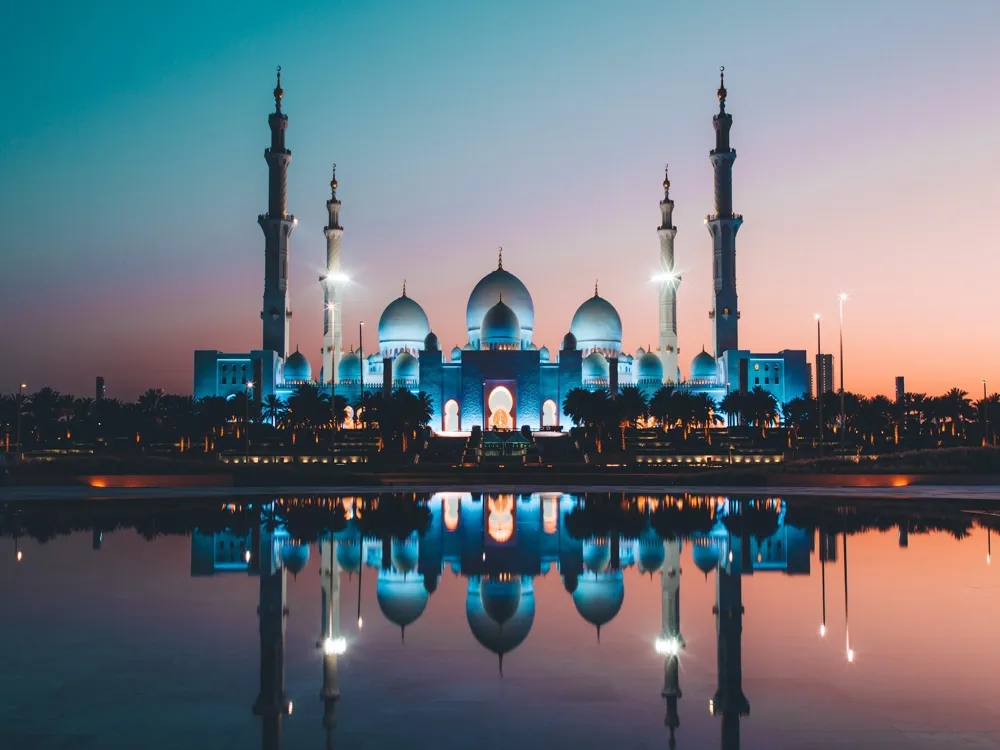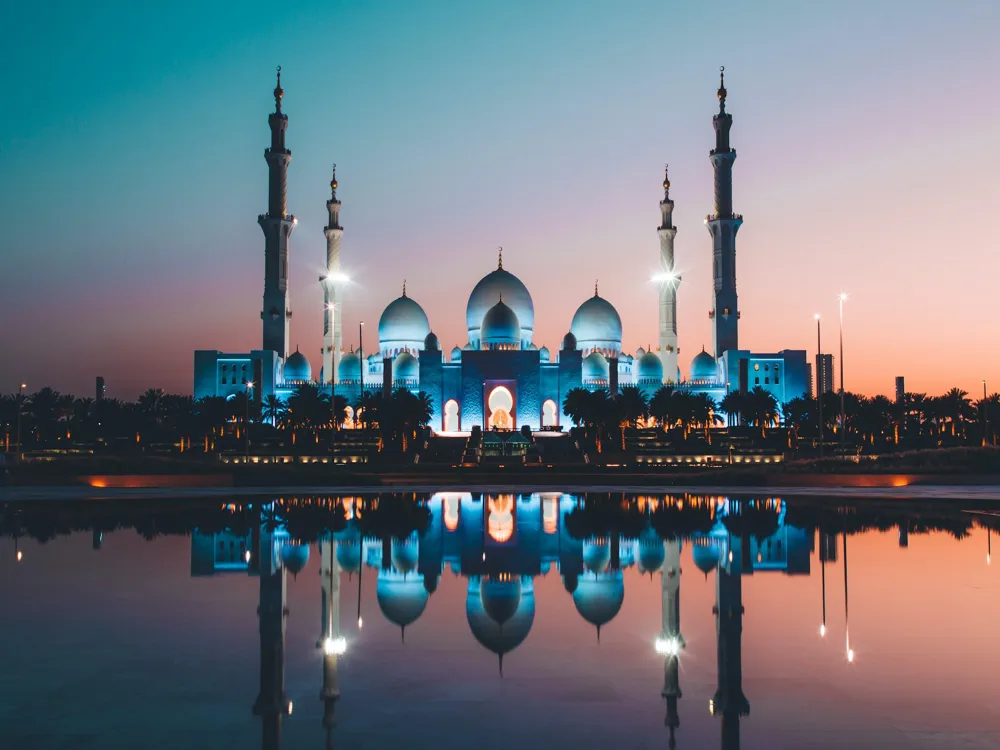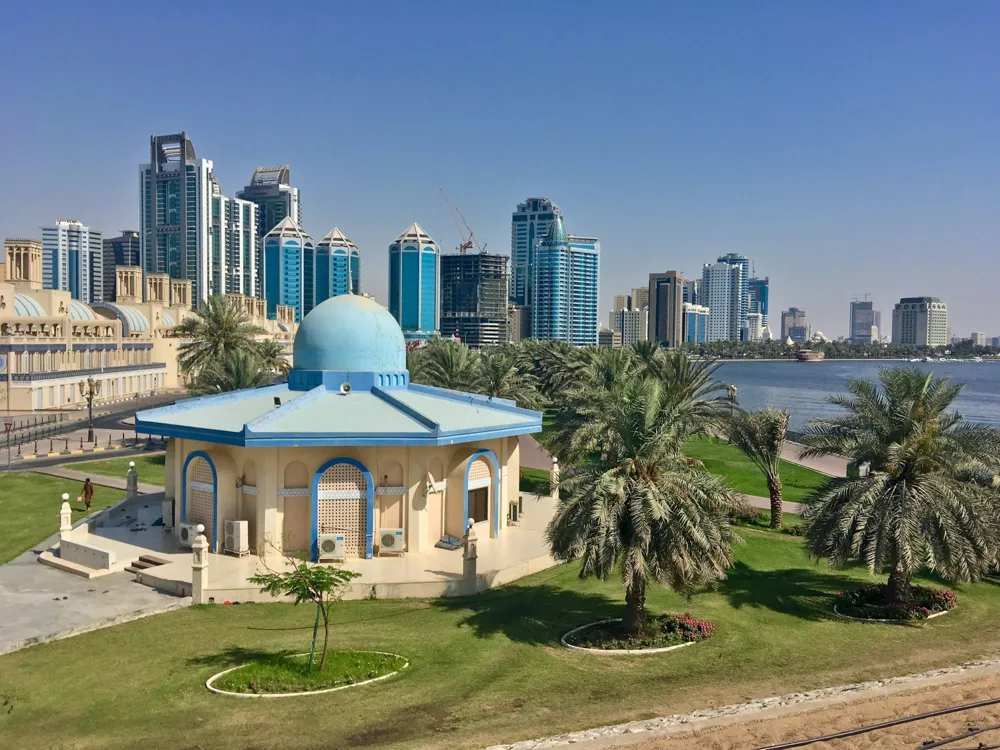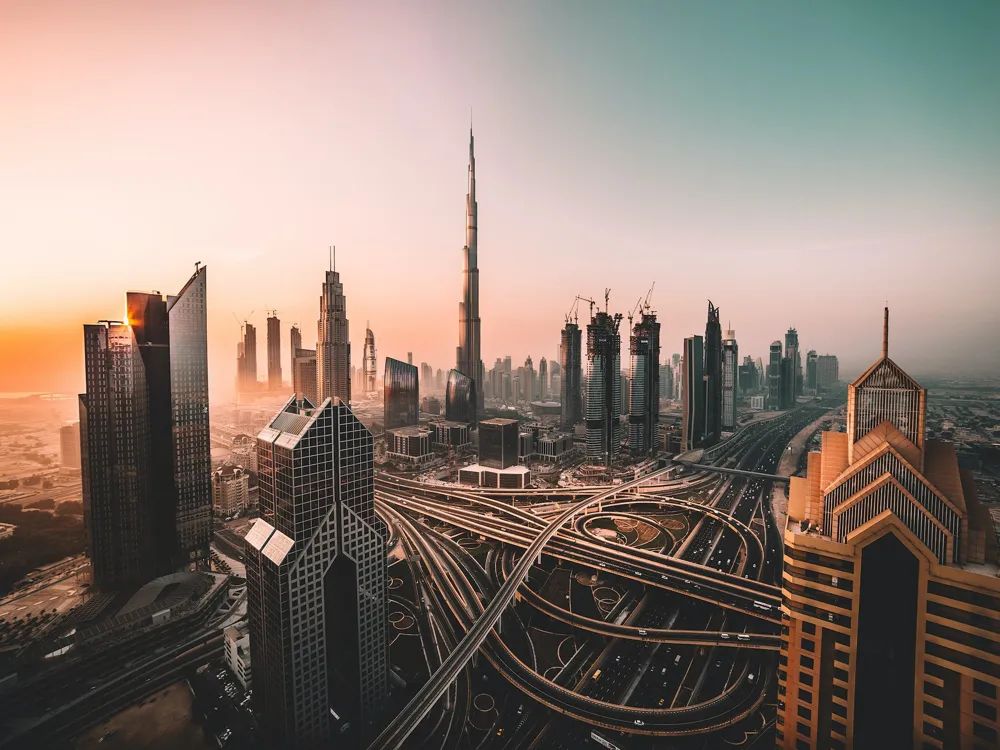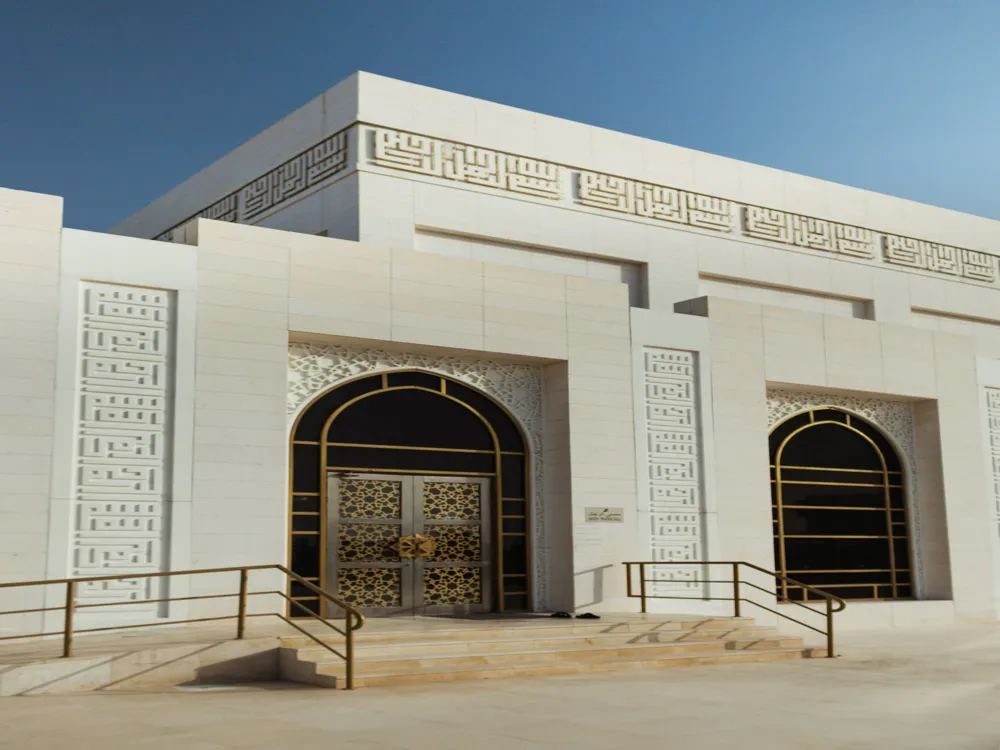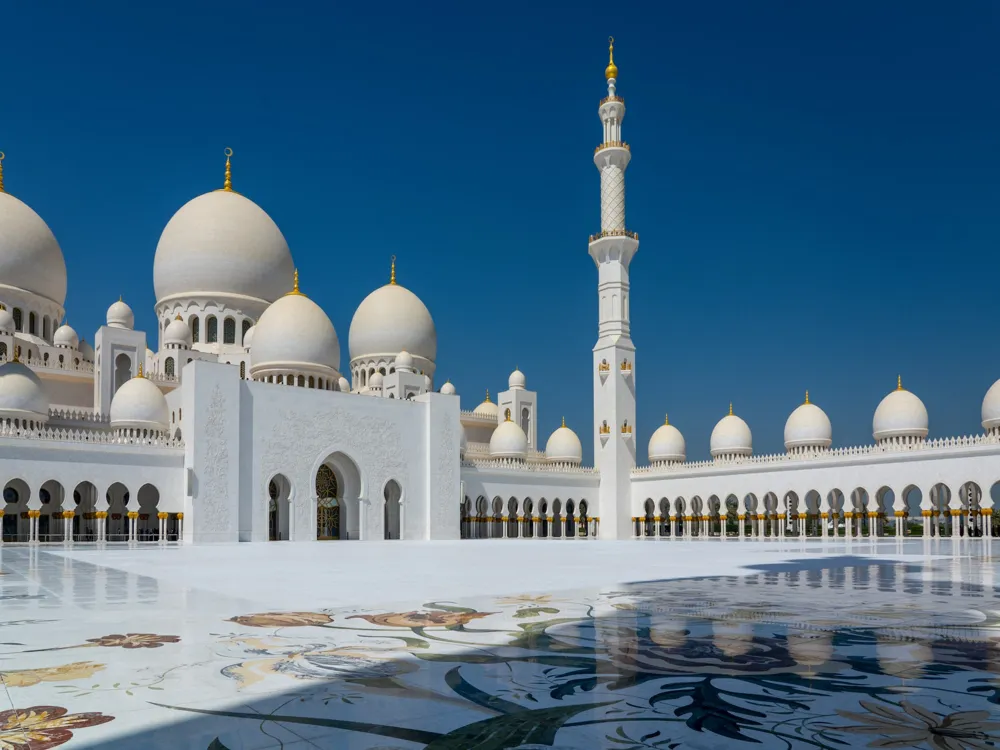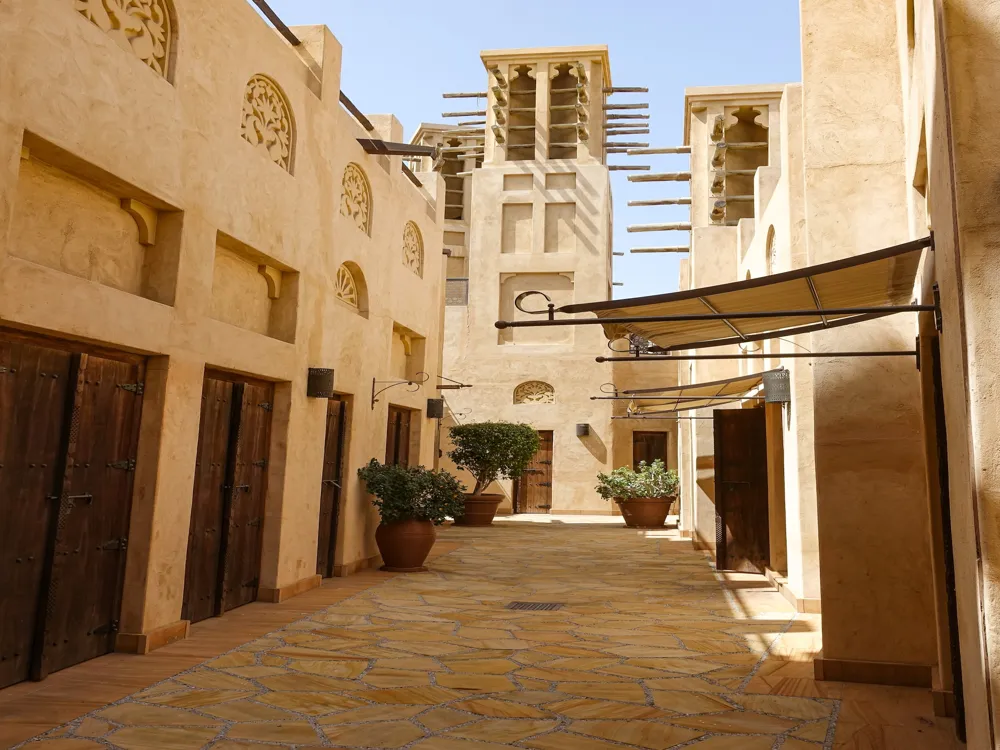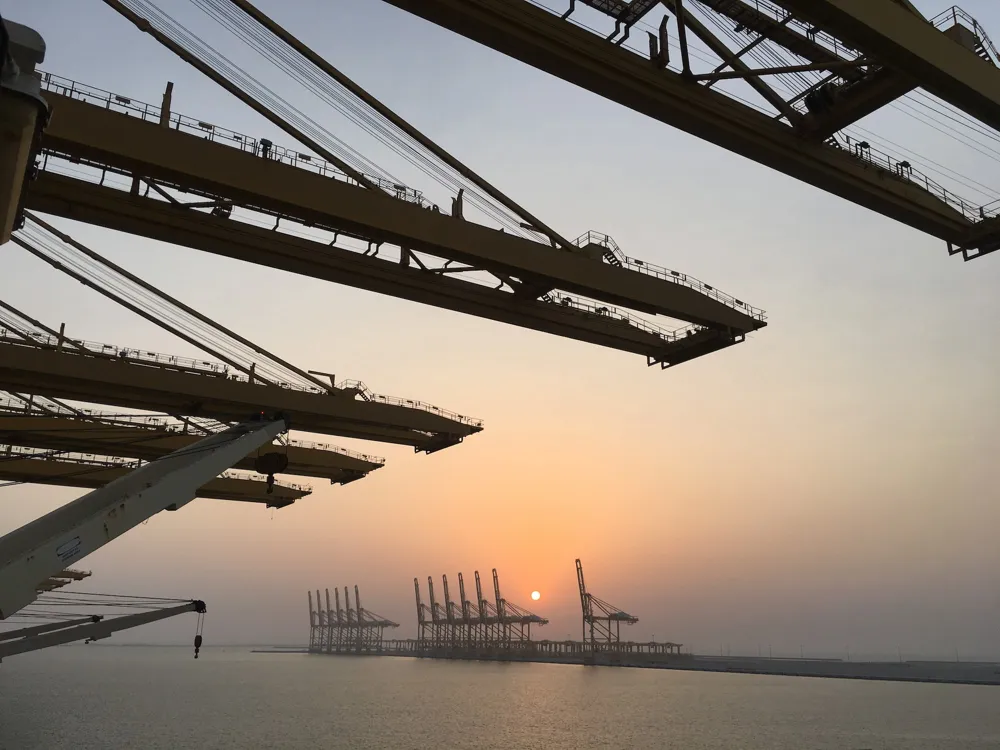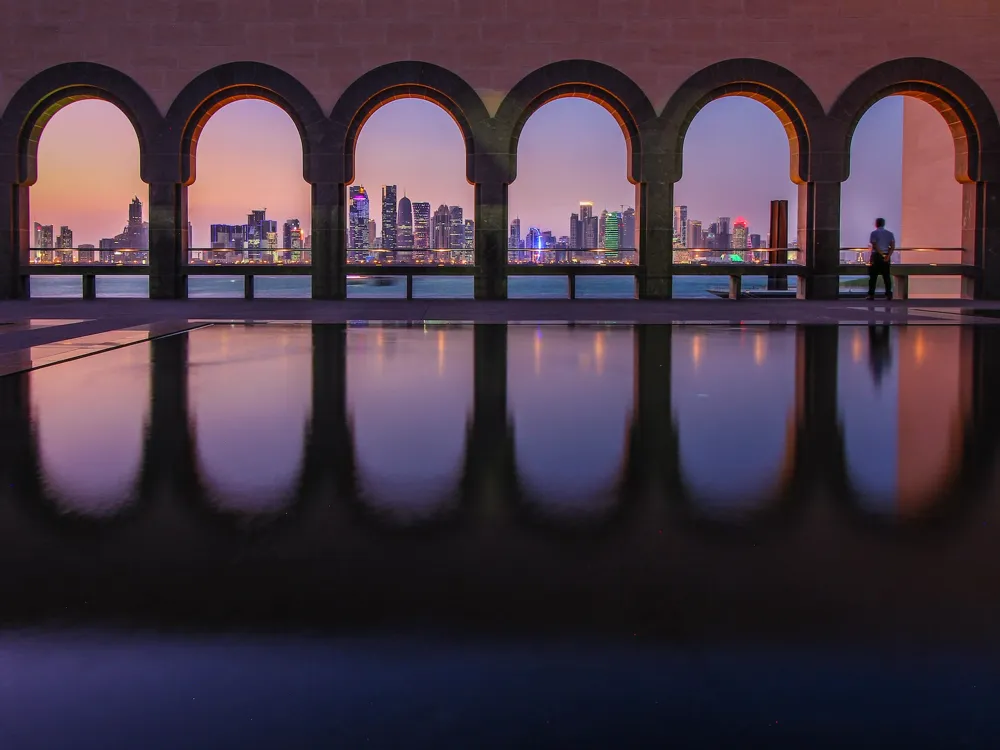Abu Dhabi, the capital city of the United Arab Emirates, is a blend of majestic modernity and rich traditional heritage. Situated on an island in the Persian Gulf, it has grown into a cosmopolitan metropolis, known for its advanced urban architecture and vibrant cultural scene. The city's history dates back to the third millennium BCE, making it one of the oldest inhabited areas in the region. Today, Abu Dhabi is a bustling hub of international commerce and tourism, attracting visitors from around the world with its unique blend of culture, luxury, and innovation. Abu Dhabi is located on a T-shaped island extending into the Persian Gulf from the central western coast. The city experiences a hot desert climate, with hot summers, warm winters, and clear skies year-round. Its unique geographical position makes it an ideal location for both maritime and desert-based activities. The city is a melting pot of diverse cultures, influenced by both its traditional Arabic heritage and the international community that calls Abu Dhabi home. This blend is reflected in its lifestyle, cuisine, and entertainment options. Visitors can enjoy everything from traditional Emirati dishes to international gourmet cuisines, as well as a range of cultural festivals and events that take place throughout the year. Abu Dhabi's economy is largely driven by oil exports, but it has been diversifying into other sectors like tourism, real estate, and financial services. The city is also an emerging hub for renewable energy and sustainable technologies, reflecting its commitment to future-oriented development. Abu Dhabi's population is a mix of Emirati nationals and expatriates from around the world. This diversity contributes to the city's dynamic and international atmosphere, making it a cosmopolitan and welcoming place for visitors and residents alike. The architecture of Abu Dhabi is a spectacular fusion of traditional Islamic designs and cutting-edge modernity. The cityscape is dotted with opulent skyscrapers, traditional mosques, and environmentally sustainable buildings, making it a fascinating destination for architecture enthusiasts. The traditional architecture of Abu Dhabi is characterized by features adapted to the desert climate, such as wind towers and thick walls. Historic buildings often showcase intricate Islamic patterns, reflecting the rich cultural heritage of the region. In recent years, Abu Dhabi has witnessed the rise of awe-inspiring modern structures. Iconic buildings like the Louvre Abu Dhabi, designed by Jean Nouvel, and the Capital Gate, known for its inclined design, are prime examples of the city's architectural innovation. Abu Dhabi is at the forefront of sustainable architecture, with numerous buildings designed to minimize environmental impact. Masdar City, a planned city project, is a testament to Abu Dhabi's commitment to sustainability, aiming to be one of the most sustainable cities in the world. Abu Dhabi is home to several cultural landmarks that blend architectural beauty with historical significance. The Sheikh Zayed Grand Mosque, a stunning piece of Islamic architecture, and Qasr Al Hosn, the oldest stone building in the city, are must-visit sites for those interested in the cultural heritage of the UAE. The best time to visit Abu Dhabi is between November and March, when the weather is cooler and more comfortable for outdoor activities. Abu Dhabi is a Muslim city, and visitors are expected to respect local customs and dress modestly, especially in religious and public spaces. Arabic is the official language, but English is widely spoken and understood. Visitors will have little trouble communicating in English in most areas of the city. Abu Dhabi has a well-developed transportation network, including buses, taxis, and a forthcoming metro system. Renting a car is also a popular option for exploring the city and surrounding areas. The city offers a wide range of accommodation options, from luxury hotels to budget-friendly stays, catering to all types of travelers. Abu Dhabi is well-connected by
Overview of Abu Dhabi
Geography and Climate
Culture and Lifestyle
Economy and Development
Population and Demographics
Architecture of Abu Dhabi
Traditional Architecture
Modern Architectural Marvels
Sustainable Architecture
Cultural Landmarks
Tips When Visiting Abu Dhabi
Best Time to Visit
Cultural Etiquette
Language and Communication
Transportation
Accommodation
How To Reach Abu Dhabi
Manarat Al Saadiyat
Abu Dhabi
₹ 23,000 onwards
View abu-dhabi Packages
Weather :
Tags : Art Gallery
Timings : 09:00 AM to 08:00 PM, daily; Art Studio - 09:00 AM to 08:00 PM (Sunday to Thursday), 10:00 AM to 08:00 PM (Friday and Saturday). The last admission is 07:00 PM on all days
Time Required : 1 - 2 hrs
Planning a Trip? Ask Your Question
Abu-dhabi Travel Packages
View All Packages For Abu-dhabi
Top Hotel Collections for Abu-dhabi

Private Pool

Luxury Hotels

5-Star Hotels

Pet Friendly
Top Hotels Near Abu-dhabi
Other Top Ranking Places In Abu-dhabi
View All Places To Visit In abu-dhabi
View abu-dhabi Packages
Weather :
Tags : Art Gallery
Timings : 09:00 AM to 08:00 PM, daily; Art Studio - 09:00 AM to 08:00 PM (Sunday to Thursday), 10:00 AM to 08:00 PM (Friday and Saturday). The last admission is 07:00 PM on all days
Time Required : 1 - 2 hrs
Planning a Trip? Ask Your Question
Abu-dhabi Travel Packages
View All Packages For Abu-dhabi
Top Hotel Collections for Abu-dhabi

Private Pool

Luxury Hotels

5-Star Hotels

Pet Friendly





